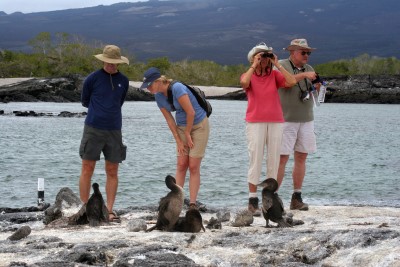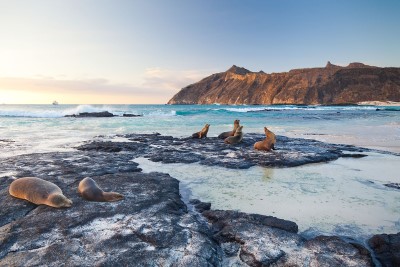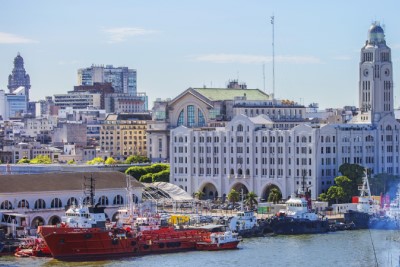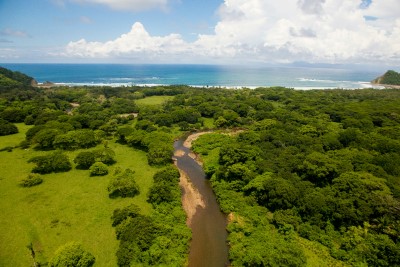LATAM NEWS
Increasing the Galapagos Entry Tax: A Turning Point for Ecological Tourism
In a world where ecological tourism is becoming increasingly important, the Galapagos Islands are at the forefront of a delicate movement to balance conservation and visitors. Recently, a measure was adopted to increase the entrance tax to this emblematic archipelago.
 This increase in the Galapagos entry tax represents a turning point for the future of tourism in the archipelago. The measure, which is due to come into force in 6 months’ time, will double the entry fee for visitors to the archipelago – unchanged for 26 years – from the current USD 100 to USD 200 for foreign travellers. As agencies adapt and visitors assess the impact of their contribution, the essence of this initiative lies in a collective commitment to safeguarding one of the planet’s most precious natural treasures, home to more than 2,900 species, a quarter of which are endemic.
This increase in the Galapagos entry tax represents a turning point for the future of tourism in the archipelago. The measure, which is due to come into force in 6 months’ time, will double the entry fee for visitors to the archipelago – unchanged for 26 years – from the current USD 100 to USD 200 for foreign travellers. As agencies adapt and visitors assess the impact of their contribution, the essence of this initiative lies in a collective commitment to safeguarding one of the planet’s most precious natural treasures, home to more than 2,900 species, a quarter of which are endemic.
Our article: Tourism in the Galapagos, preserving the fragile balance
 The aim of this initiative is not so much to limit the number of visitors as to ensure a quality experience that contributes to the preservation of this ecosystem, with the active participation of all those who visit.
The aim of this initiative is not so much to limit the number of visitors as to ensure a quality experience that contributes to the preservation of this ecosystem, with the active participation of all those who visit.
Niels Olsen, Ecuador’s Minister of Tourism, believes that it is a priority to stabilise the growth in the volume of tourism in order to preserve the well-being of the ecosystem and its inhabitants. He points out that this increase in the entrance tax will raise up to an additional 18 million dollars a year, rising to 40 million dollars by 2025. These resources will be used for conservation projects, monitoring and improving basic services that are a priority for tourists.
Our article: 10 must-see sites in the Galapagos Islands
The measure to increase the Galapagos Islands entry tax underlines a vital awareness of the need to protect fragile ecosystems in the face of booming tourism. By aiming to fund conservation projects and infrastructure improvements, this initiative represents a delicate balance between preserving the archipelago’s unique biodiversity and welcoming visitors. Although this increase may give rise to debate about the accessibility and effectiveness of conservation measures, it represents a crucial step towards more responsible tourism that is aware of its environmental impact.
Photos: Ecuador Ministry of Tourism
RECENT POSTS

Montevideo, New Headquarters of the Tourism Law Observatory for Latin America and the Caribbean
LATAM NEWS Montevideo, New Headquarters of the Tourism Law Observatory for Latin America and the CaribbeanMontevideo, the capital of Uruguay, has been designated as the headquarters of the Tourism Law Observatory for Latin America and the Caribbean, an initiative...

Guanacaste: An Escape to the Heart of Costa Rican Biodiversity
DESTINATIONS Guanacaste: An Escape to the Heart of Costa Rican Biodiversity Situated in the north-west of Costa Rica, the province of Guanacaste is a natural paradise that captivates visitors with its ecological diversity, heavenly beaches and deep-rooted cultural...

“Meaningful Meetings in Peru 2024”: A New Era for Meeting Tourism
LATAM NEWS “Meaningful Meetings in Peru 2024”: A New Era for Meeting Tourism Peru's Export and Tourism Promotion Agency (PROMPERÚ) recently launched its ‘Meaningful Meetings in Peru 2024’ campaign. This initiative aims to position Peru as a destination of...


